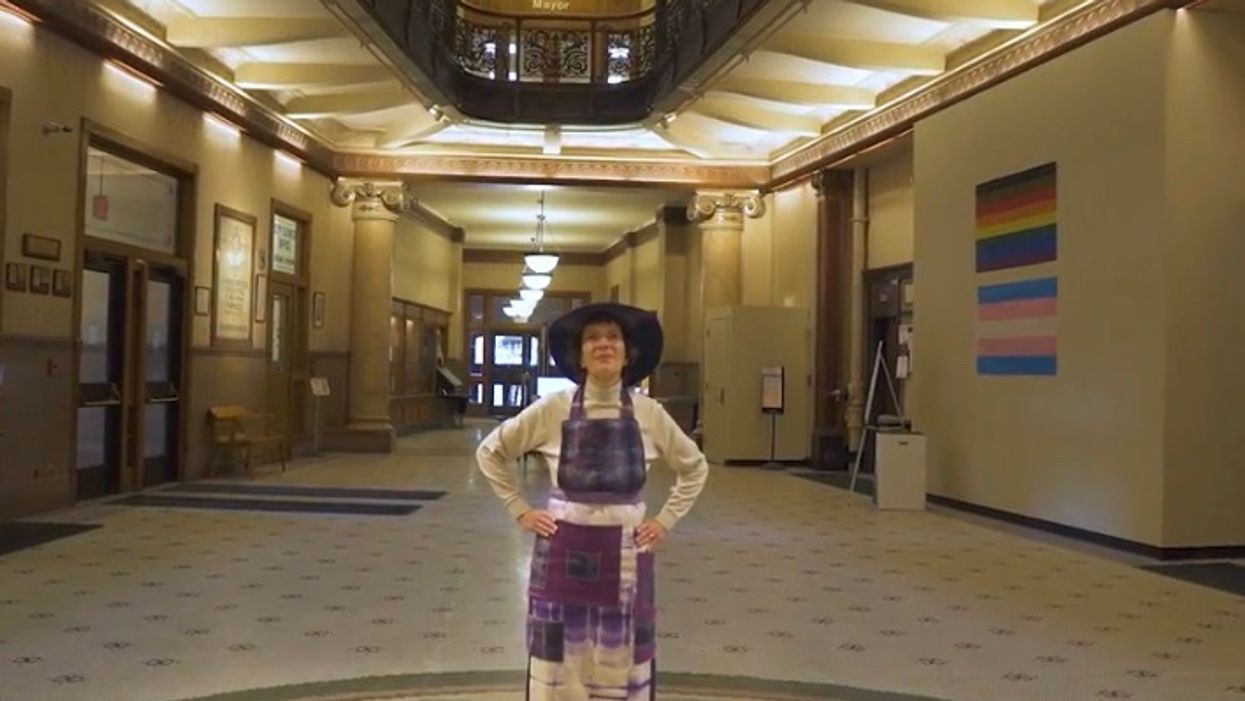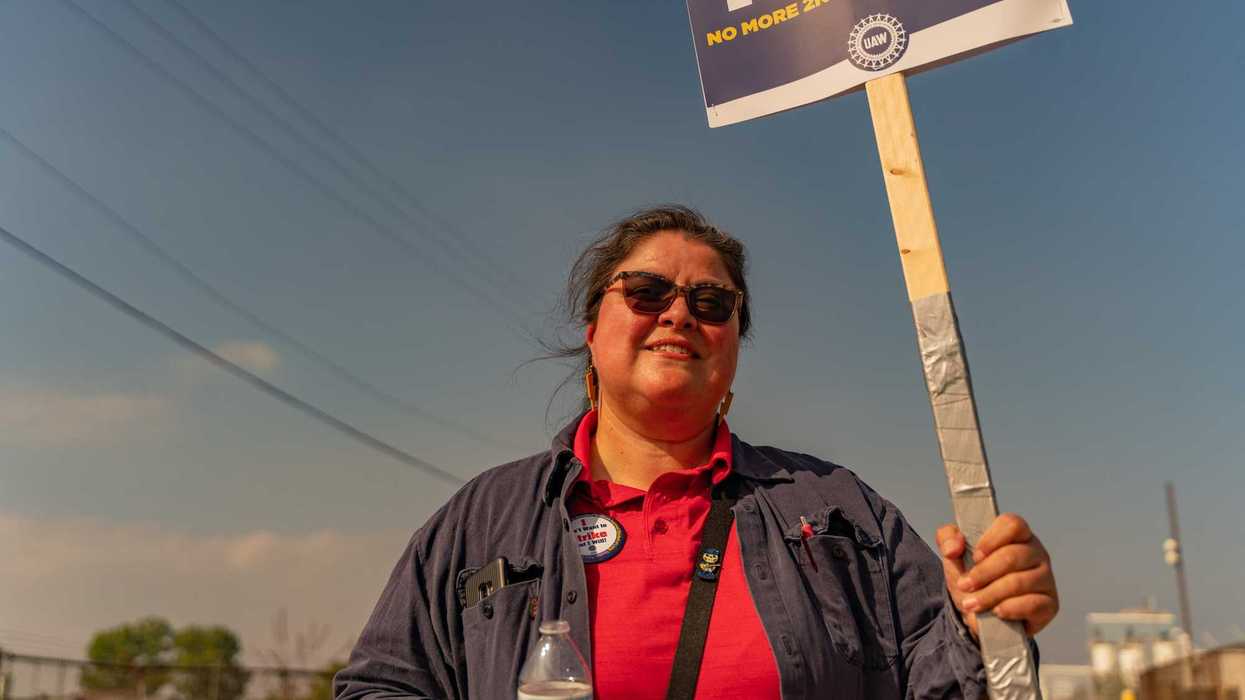Though this assertion is incorrect, it is the objection I have heard the most since last September. That's when I started presenting a five-minute "Is This Fair?" performance art piece, urging people in my state to press lawmakers in Madison to enact what's called "the national popular vote" legislation.
The bill has not gone beyond a hearing in the GOP-majority Legislature so far. But if passed, Wisconsin could become the first presidential battleground to pledge its electoral votes (10 of them) to the winner of the nationwide popular vote instead of the statewide popular vote — just as soon as states with an additional 260 electoral votes have done likewise.
Then, their collective commitments would guarantee the national popular vote winner and Electoral College winner are the same, which of course did not happen in either 2016 or 2000. (So far, 16 states and Washington, D.C., with a combined 196 electoral votes, have joined this National Popular Vote Interstate Compact.)
I have made 150 presentations to 500 people in more than 30 places. Since the coronavirus outbreak, I have been performing mainly outdoors, with a purple face mask part of my purple suffragist outfit.
This isn't my first nonpartisan voting project. I co-produced 11 performances across Milwaukee on Election Day 2008 that used music, dance, video, recorded sound, puppetry, interactive sculpture and poetry to celebrate and encouraged conversations about citizenship and voting.
"True democracy is a project that's much bigger than any one of us," Barack Obama said in his final speech as president, in January of 2017. "It's bigger than any one person, any one president, and any one government. It's a job for all of us."
That's when I realized I must do another nonpartisan voting project in 2020. But now I am 66 and don't have my former stamina, so the project needed to be flexible and fit between times with my two young grandsons. But it also needed to be in the flesh, not online, as Timothy Snyder encouraged when he wrote: "Practice corporeal politics. Power wants your body softening in your chair and your emotions dissipating on the screen. Get outside. Put your body in unfamiliar places with unfamiliar people."
The first performance to a large group was last October, on the same day as the funeral for the venerable Baltimore congressman Elijah Cummings. "When we're dancing with the angels, the question will be asked: In 2019, what did we do to make sure we kept our democracy intact?" he said a few months before he died. "Did we stand on the sidelines and say nothing?"
When my nerves won't settle down, I think of that. But the presentations have not gotten easier, even though the average audience is only two people.
What have I experienced? Let's start with the worst.
On a gorgeous January day, I was at a carnival in a sculpture garden and park. Since most were there to look at the art, I expected many would dismiss me. Then I approached a couple on a bench by a fire pit. People often interrupt with questions or comments, which is great. It means people are engaged.
"You don't know anything about the Electoral College," the husband said. "Democrats are allowing immigrants into the country to get their votes." I tried to answer but he only wanted to bully me and I soon gave up. "Why don't you do something positive and do some volunteer work?" he yelled as I walked off.
For the rest of my life I will remember an obdurate woman at a farmers market in suburban Milwaukee. She was one of the many who claimed, "Without the Electoral College, New York and California will choose the president." I countered, "There are 4 million Republicans in California whose votes aren't worth anything." She laughed and insisted, "There aren't any Republicans in California." Instead of noting that a Republican had just won a special House election in suburban Los Angeles, I offered that "there are an equal number of urban and rural voters in the country." In a hushed voice she responded, "Those urban voters are all Black."
In June, I started driving to conservative areas in the southeastern part of the state. I worried people might rip off my mask or call the police. Nope. It has been gratifying that no matter where I go, half the people I approach will listen and take my card explaining the campaign. This fits my view of Wisconsinites. We believe in being fair.
Every person who watches has learned something new, except one political science professor. He instructed me to become an elector. In one case, a young woman didn't know what the Electoral College was. In another, a young man supposed the Electoral College went into effect recently.
This spring I read an article advising young journalists how to talk to different types of people. With "aggressive" adults, it recommended asking questions. Now I always ask questions instead of countering arguments. Rather than challenging people who say, "What was good enough for the Founding Fathers should be good enough for us," I ask, "Did you know that as political parties emerged Thomas Jefferson, James Madison, and Alexander Hamilton all feared the direction the Electoral College was heading and suggested changes?" This at least raises people's eyebrows and sometimes leads to further discussion.
And I believe I had heavenly help on July 16. That was my mother's birthday. She died in early 2017 but might have stayed on earth a few months longer — except Hillary Clinton's Electoral College loss to Donald Trump crushed her. Arriving at the same farmers market where the woman had whispered about Black voters, I asked for mom's aid. He delivered. Every person I approached was positive. Three sets of people thanked me for what I am doing.
Maybe, just maybe, with my mom's support, Wisconsin will pass the national popular vote bill.



















Why does the Trump family always get a pass?